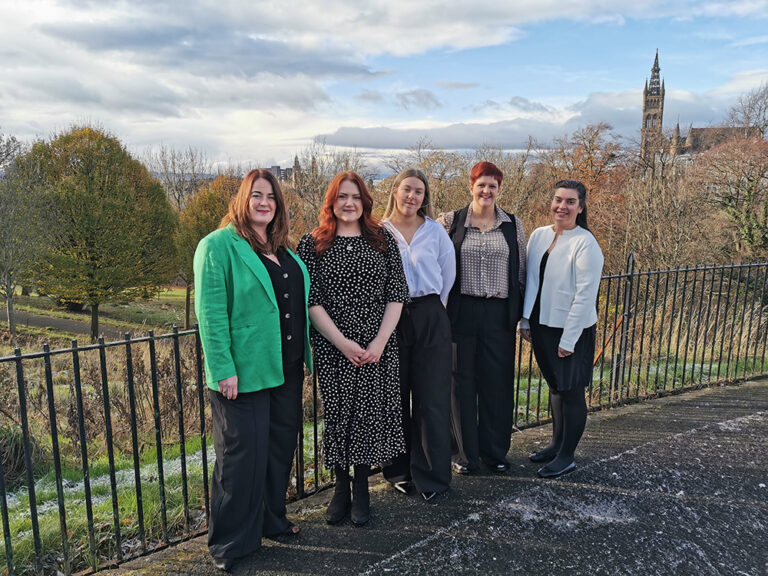Every parent has a role to play when it comes to raising children, but understanding the legal framework behind parental rights and responsibilities in Scotland can sometimes feel a bit overwhelming. Whether you’re going through a separation, figuring out child custody arrangements, or simply curious about your legal obligations as a parent, a solicitor can help clarify the path forward.
What Are Parental Rights and Responsibilities?
In Scotland, parental rights (PRRs) refer to the legal powers a parent holds about their child. These rights come hand-in-hand with parental responsibilities, which are duties you must fulfil in your child’s best interests. It’s important to note that while parents have rights, they are primarily to carry out responsibilities for their children, such as providing emotional and financial support, ensuring their health and safety, and making decisions regarding their education and upbringing.
Key Parental Rights Include:
- Deciding where your child lives
- Making decisions about your child’s education
- Giving or withholding consent for medical treatments
- Choosing your child’s religious upbringing
- Protecting your child’s property (if applicable)
Key Parental Responsibilities Include:
- Safeguarding and promoting your child’s health, development, and welfare
- Guiding your child as they grow
- Maintaining regular contact with your child if they don’t live with you
- Acting as a legal representative for your child in necessary situations
Who Has Parental Rights and Responsibilities?
In Scotland, not everyone automatically has parental rights. By law, a mother automatically gains parental rights and responsibilities when her child is born. Fathers, on the other hand, only have PRRs if:
- They were married to the child’s mother when the child was born, or
- They are named on the child’s birth certificate (since May 4, 2006).
For unmarried fathers or other individuals (e.g., grandparents or step-parents) seeking parental rights, it’s possible to obtain PRRs through an agreement with the mother or by applying to the court.
The Role of Solicitors in Parental Rights and Responsibilities
At times, navigating these legal rights and responsibilities can get tricky—especially in cases of separation, divorce, or disagreement over a child’s upbringing. That’s where a solicitor steps in. Here are a few scenarios in which a solicitor’s expertise can make a significant difference:
1. Parental Disputes and Mediation
When parents cannot agree on key issues like where a child will live, or which school they’ll attend, a solicitor can assist by mediating the discussions. Mediation can help avoid the need for court involvement, aiming for a solution that’s in the best interest of the child.
2. Court Applications for Parental Rights
If you’re a father, step-parent, or other family member seeking PRRs, a solicitor can guide you through the process of applying to court. They will help you present a case that demonstrates why obtaining these rights would benefit the child.
3. Parental Responsibilities After Separation or Divorce
Following a separation, it’s common for disagreements to arise regarding custody, visitation rights, or who should make key decisions for the child. A solicitor can assist in drafting a parenting plan or securing a court order that outlines the legal arrangements for both parents moving forward.
4. Child Welfare Concerns
When issues arise regarding a child’s welfare—whether due to allegations of neglect, abuse or simply differing opinions on what’s best for the child—a solicitor can help navigate these serious matters. They can represent you in Children’s Hearings or court proceedings, ensuring your side of the story is heard while prioritizing the welfare of the child.
How Does Scottish Law Approach Parental Rights?
Scotland’s legal system puts the welfare of the child above everything else. The Children (Scotland) Act 1995 is the key piece of legislation governing parental rights and responsibilities, laying out the duties parents have toward their children and how they should exercise their rights.
Best Interests of the Child
Under Scottish law, the child’s best interests are the primary consideration in any legal dispute over PRRs. Courts will consider factors such as:
- The child’s own views (if they are mature enough to express them)
- The child’s welfare, safety, and health
- Which parent can best meet the child’s needs
Children’s Hearings
In more serious cases—where the child’s welfare is at risk or where there’s a dispute involving care arrangements—a Children’s Hearing might be called. This system is unique to Scotland and allows children to have a say in their care and protection. Solicitors play an important role in representing the child or parents during these hearings.
How to Apply for Parental Rights and Responsibilities in Scotland
If you don’t automatically have PRRs, you can apply for them in one of two ways:
- Mutual Agreement: If the other parent agrees to give you parental rights, you can complete a Parental Responsibilities and Parental Rights Agreement (Form PR-R), which must be registered in the Books of Council and Session.
- Court Application: If agreement isn’t possible, you can apply to the court under Section 11 of the Children (Scotland) Act 1995. The court will evaluate the request based on what’s best for the child, and a solicitor will help build and present your case.
When Do Parental Responsibilities End?
Parental responsibilities don’t last forever. In Scotland, these responsibilities typically end when the child turns 16. However, certain obligations, such as providing financial support for education, can continue until the child is 25 if they are still in full-time education.
FAQs About Parental Rights in Scotland
1. Can grandparents get parental rights?
Yes, but they must apply to the court for parental rights and responsibilities. The court will decide based on the child’s best interests.
2. What happens if parents can’t agree on important decisions?
If parents can’t reach an agreement, they can use mediation or apply to the court for a decision.
3. Can parental rights be removed?
Yes, a court can remove parental rights if it is deemed to be in the child’s best interests, such as in cases of neglect or abuse.
4. What is a contact order?
A contact order is a legal order that specifies how and when a non-resident parent can see their child. The court may issue this if parents cannot agree on contact arrangements.
Navigating parental rights and responsibilities in Scotland can be complicated, especially during family disputes or legal challenges. A solicitor can be a valuable ally, helping you protect your rights while ensuring that your child’s welfare remains at the forefront of any decisions.
Whether you’re looking to clarify your legal position as a parent or need help resolving a dispute, understanding your rights and responsibilities is the first step toward making the best decisions for your family.
Feel free to reach out to a qualified family law solicitor in Scotland to get the legal guidance you need!







